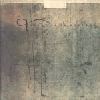
Crushed
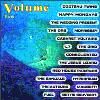
Frosty The Snowman
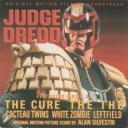
Need Fire
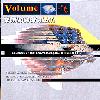
Circling Girl
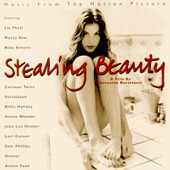
Alice
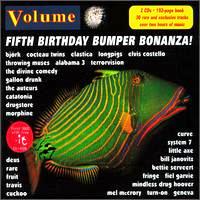
Touch Upon Touch
Other tracks
 |
Lonely Is An Eyesore - 1987
Crushed |
 |
Volume 5 - 1992
Frosty The Snowman |
 |
Judge Dredd Soundtrack - 1995
Need Fire |
 |
Volume 15 - 1995
Circling Girl |
 |
Stealing Beauty Soundtrack - 1996
Alice |
 |
Volume 17 - 1997
Touch Upon Touch |
|
Many a song or song fragment by the Cocteau Twins has appeared on special releases,
marketing material, one-track promotion CD's and so on. Virtually none of these were
ever available to the general public, but they almost invariably contained material
released elsewhere already anyway.
On a few occasions though tracks by the Cocteau Twins were not initially released on one of their own albums or EP's but appeared on generally available movie soundtracks or various albums. The first track of this kind was Crushed, appearing on the 1987 Lonely Is An Eyesore compilation by 4AD and 23 Envelope. In the mid-nineties the Cocteaus contributed Need Fire and Alice to the Judge Dredd and Stealing Beauty soundtracks respectively. Finally three more tracks appeared on various artist albums: Frosty The Snowman on Volume 5, Circling Girl on Volume 15 and Touch Upon Touch on Volume 17. This last track is probably the last new song ever to be released by the band. Some of these tracks were later put on Cocteau releases after all: Crushed was included in The Box Set, Frosty The Snowman was put on Snow, both Circling Girl and Alice were included on the 'green' Violaine CD. Need Fire and Touch Upon Touch never appeared anywhere else though, and are therefore very much among the rarer Cocteau tracks. |
|
Crushed Even when one didn't know when Crushed was recorded it is pretty obvious the track originates from the same era as the Love's Easy Tears EP. The song is clearly dominated by the heavy sounds and steady beats so typical for those days. The main feature of the song is the rather special guitar. Used almost like some kind of percussion it amazingly sounds somewhat like an alarm bell. Steady as such a device and true to the song's concept the guitar never misses a beat, thus providing the framework for the song. Continuous and heavy percussion and dark bass lines are the other bricks that build the wall as solidly as the band apparently wanted it to be. Against such a background the vocals can not be expected to show too many subtleties. Liz sings very emotionally and emphatically, and only in the chorus does she allow herself to a few more lighthearted lines rather than the lengthy notes that she delivers throughout. Vocal overdubs further increase the intensity and overwhelm the listener with the dramatic atmosphere of this heavy song. Crushed indeed! The band rarely selected a better song title. Crushed was originally released on Lonely Is An Eyesore, a joint project by 4AD and 23 Envelope, but later appeared on the bonus CD included in The Box Set as well. |
|
Frosty The Snowman When somebody asked the band to contribute a cover version to a 1992 Christmas record Liz jokingly suggested they should do Frosty The Snowman. Robin immediately enthused that with a song title as odd as that most people would probably think it was a normal Cocteau track anyway. When Liz later learned the lyrics were all merry and lighthearted she apparently had second thoughts, feeling that she was unable to sing such happy phrases. The song was nevertheless recorded shortly thereafter and released on the Volume 5 compilation album. Frosty is a gentle tune with playful lyrics that manages to catch the atmosphere of a carefree and happy Christmas perfectly. To the band's credit they did not try and redefine the song but kept their version as simple and straightforward as possible. Liz' vocals sound truly warm and the lyrics are easily understandable. A tambourine adds just that little bit to the arrangement to give it a real Christmas flavour. What version of this song could possibly be preferred to this one? Frosty The Snowman was later also included on the limited edition Snow EP. |
|
Need Fire The Cocteau Twins provided just a single song for this soundtrack, and as we all know, such contributions are often just relatively plain and simple songs. Forget it. Need Fire is absolutely brilliant, a one-off masterpiece, a pulsating track that easily ranks among the band's best work. To catch the spirit of this song in words is amazingly hard. For a start it's totally unlike anything else the band ever recorded. It was created only two years after Four-Calendar Café but has nothing in common with it. In fact the track is vibrating with the kind of energy that was so obviously absent for most of that album. One might think it forebodes Milk & Kisses, but it doesn't really resemble any of that album's tracks either. It's just a unique song, and in the Cocteau world that in itself is a small miracle already. So, what does it sound like? At least a number of well known features can be recognized. The exuberant voice of Liz, of course, heavily supported by lots of overdubs. Guitars, a bit distorted at times, densely woven together, just as the band used to do many years earlier. There's solid percussion, contributing to a 'wall of sound' effect. Its quick rhythm gives the song a nervous and edgy feeling. Liz' vocals sound rather disconcerting, and the background of darkly rumbling guitars turns this somehow into a rather brooding and sinister song. Which, given the cynical and harsh nature of the Judge Dredd movie is in fact rather appropriate. So how does one obtain this wonderful song? The soundtrack CD is, of course, long out of print. And sadly Need Fire was never released on any official Cocteau Twins record, and is therefore virtually impossible to obtain. Perhaps it will yet appear one day on some 'rare track' collection. Because this outstanding effort should really find its place into every Cocteau Twins collection. |
|
Circling Girl During their final years the band gradually developed a style that was fairly filled with sound, though not particularly heavy. Circling Girl is probably a good example of this, since it has many features in common with many other tracks from this period. It's not really a loud song, but the sound level in Circling Girl remains constant throughout. Though not played particularly heavily the guitar is definitely dominating the song. Robin plays it with a flowing, continuous line all through rather than with separate chords, thus providing a varying but still ever present background. By weaving in a number of unexpected twists and turns he provides Liz with a very interesting musical landscape to perform against. Rhythmically the band use a very effective technique: a slower rhythm with a quicker three time embedded. The guitars and percussion follow the faster pace with the vocals taking the quieter route most of the time. It means that Liz can sing fairly relaxed and can apply her angel choir impression again. She also has to take care of the main melody all by herself though, and despite her efforts her main vocal melody isn't quite as convincing as the guitar parts. Circling Girl is still a pleasant enough song to listen to, and whatever qualities the main melody may lack is easily compensated by the inspired guitar effects. Circling Girl was later put on the 'green' Violaine EP in a slightly different version. On Volume 15 there is a brief intro of softly played guitars that is missing on the Violaine release. Apart from that the two versions appear to be identical. |
|
Alice Ingenious vocal overdubs mingled with a variety of instruments played against a steady piano theme - together they weave a magical sound carpet called Alice. A piano, playing a deceptively simple yet ever so catchy little melody introduces the song. But it soon becomes very hard to tell exactly which instruments we hear as lots of them join in. Most of the time they all melt together in the kind of melodic tapestry so typical for this era. And it's such a rhythmic song that it may not be immediately obvious something quite remarkable is happening: in the best tradition of Victorialand the song is played without a single beat of percussion! As is so often the case with the band's later work this track is mainly about the vocals. Liz sings two rather different parts at fairly different pitches, but they complement each other beautifully. The chorus has another subtlety, as the song title is repeated five times within a rhythm of eight, but somehow it all fits in completely naturally. Although never released on a Cocteau album Alice is probably one of the finest examples of the band's 'wall of sound' type songs. Its rich sounds and creative melodies make this song a highlight of the band's final efforts. Alice was later also released on the 'green' Violaine CD. |
|
Touch Upon Touch Probably the last Cocteau track ever to be released (unless someone finds a long forgotten track lying on a shelf somewhere) Touch Upon Touch is mostly a soft and lovely ballad, but it has a few unexpected twists in it as well. As so often Liz is the star of the show, her beautiful melodies dominating the first parts. Light percussion, and a few sparse guitar chords is all she gets for company. Vocal overdubs make for a stunningly gorgeous chorus, and for a long time it seems unlikely the song's serenity will be disturbed. And it would have been a great track even if the band would have left it at that. But they didn't. As if the band were aware this was to be one of their final tracks they decided to dig deep once more. Suddenly there's an interlude with a heavy guitar. In fact it even appears to be played with a bit of distortion. Shades of Garlands! Liz reacts by switching into overdrive, and a prominent bass puts Simon into the limelight as well. The louder episode is soon followed by a return to tranquility, although there are still a few more lovely guitar wails woven in. But everything ends in peace and harmony eventually, and with it so did their career as a threesome. If the band would have proceeded to produce yet another album, would it have sounded like this? If so, what a treat it might have been. We'll never know of course. Still, Touch Upon Touch is a composition well worth filling the final page of the amazing Cocteau Twins book of songs. |